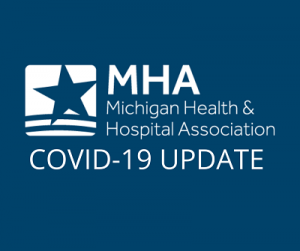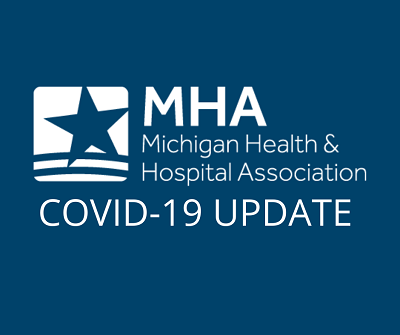
 The MHA received media coverage the week of April 3 regarding the preparedness of hospital for another pandemic and how hospital and health system merger and acquisition activity impacts healthcare.
The MHA received media coverage the week of April 3 regarding the preparedness of hospital for another pandemic and how hospital and health system merger and acquisition activity impacts healthcare.
ABC News published a story April 1 that reviewed how chronic staffing shortages and new threats to funding may undermine the ability of hospitals to respond to a future pandemic. ABC News spoke to 11 hospital associations, including MHA CEO Brian Peters. A quote from Peters is included in the story regarding staffing challenges.
“Now, nurses and others are leaving health care altogether, to companies that have signing bonuses and very high hourly rates. And so all of a sudden, hospitals are in a position where the only way we’re going to have an adequate nursing force is to work with the nurse traveler agencies,” said Peters.
Bridge published an article April 3 on the finalized partnership between Michigan Medicine and Sparrow Health System. A section of the article reviews hospital acquisitions and mergers within healthcare. Peters spoke to the general reasons why a hospital or health system may determine merging with another organization is the best decision for their community.
“We have hospitals right now in Michigan … that are struggling mightily from a financial perspective,” said Peters. They’re struggling with supply chain issues. They’re struggling with the workforce.”
“I’ve heard it said more than once and I really think this summarizes the situation well: ‘We value our independence, but we’re not going to ride our independence to our grave.’ The ultimate goal of any organization — whether it’s a hospital system or any other entity in the community — is not about maintaining your independence. It’s about maintaining your viability.”
The Detroit Free Press and Michigan Radio also published stories on a recent nursing workforce survey released April 6. A portion of a statement Peters issued in March following the appropriation of $75 million for healthcare recruitment and retention as part of Public Act 5 of 2023 was published in the Detroit Free Press story. Meanwhile, the MHA provided a statement to Michigan Radio sharing the study incorrectly identifies mandated nurse-to-patient staffing ratios as a solution to the problem of inadequate nurse supply. Portions of the statement are included in the Michigan Radio article.
Members with any questions regarding media requests should contact John Karasinski at the MHA.


 COVID-19 cases and related hospitalizations have continued to climb in Michigan, with 1,356 adults and 17 children hospitalized Sept. 17 with confirmed cases. The total number of confirmed cases in the state since the pandemic began is nearing 1 million, reaching 988,725 cases that had caused 20,665 deaths as of Sept. 17. Meanwhile, by Sept. 16, just 66.7% of Michigan residents ages 16 and over had received at least one dose of a vaccine to combat the illness.
COVID-19 cases and related hospitalizations have continued to climb in Michigan, with 1,356 adults and 17 children hospitalized Sept. 17 with confirmed cases. The total number of confirmed cases in the state since the pandemic began is nearing 1 million, reaching 988,725 cases that had caused 20,665 deaths as of Sept. 17. Meanwhile, by Sept. 16, just 66.7% of Michigan residents ages 16 and over had received at least one dose of a vaccine to combat the illness.